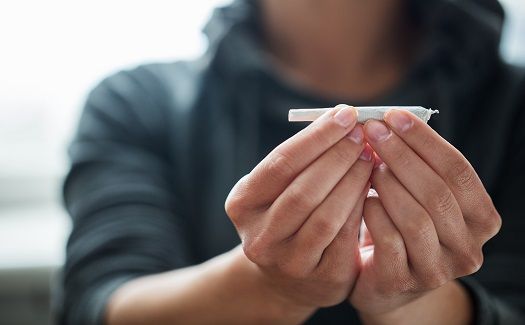Many Turning to Recreational Cannabis for Pain Relief, Sleep Aid
A recent study found that 65% of adult users reported using cannabis for pain relief and 88% of those taking opioid analgesics reported reducing or discontinuing use of medications.

A recent study is suggesting that marijuana could be an effective option for pain relief and insomnia, after investigators found that 65% of the study population taking cannabis did so for pain and 80% of them found it to be very or extremely helpful.
Investigators surveyed more than 1000 adult-use patients in Colorado and found that many were consuming cannabis, without a prescription, as a means to relieve pain or to promote sleep.
In order to learn more about spectrum of cannabis use for pain relief and as a substitute for prescription and over-the-counter medications, investigators conducted online surveys of cannabis users at 2 adult-use dispensaries.
Survey respondents were asked a multitude of questions relating to sociodemographic factors, self-reported health status, use of cannabis to relieve pain, and the use of cannabis to promote sleep, and how cannabis had changed their use of medication — whether prescribed or over-the-counter. Investigators collected responses from 1240 individuals — of which, 240 were excluded due to medical certification.
Of the final sample of 1000 participants, investigators reported that most respondents (90%) were under 50 years older, 42% were women, and 66% reported white, non-Hispanic as their race/ethnicity. Additionally, 54% reported being of excellent or very good health status.
After analyzing responses, investigators found that 647 of adult users reported using cannabis to relieve pain. Of that group, 72% reported taking cannabis daily and 80% reported that cannabis was very or extremely helpful for relieving pain.
Among respondents that were taking over-the-counter pain medications, 82% reported reducing or stopping use of those medications. Additionally, 88% of patients that were taking opioid analgesics reported reducing or stopping the use of those medications.
In regard to sleep, 742 survey respondents reported using cannabis as a means to promote sleep. Of that group, 68% reported taking cannabis daily and 83% found it to be very or extremely helpful for sleep. Among respondents taking over-the-counter sleep aids, 87% reported reducing or stopping the use of those medications. Additionally, 83% of those who reported taking prescription sleep aids reduced or stopped using those medications.
Investigators noted in their discussion their belief that results add weight to the theories that widening access to medical cannabis could reduce use of prescription painkillers. Additionally, investigators noted that randomized controlled trials are needed to determine the net benefits and harms of using cannabis as a substitution for medications.
"The challenge is that health providers are far behind in knowing which cannabis products work and which do not,” said Gwen Wurm, MD, assistant professor of clinical pediatrics at the University of Miami Miller School of Medicine. “Until there is more research into which cannabis products work for which symptoms, patients will do their own "trial and error," experiments, getting advice from friends, social media and dispensary employees.”
Investigators noted multiple limitations within their study. These limitations included performing the survey at an adult-use dispensary, which could have resulted in surveying more frequent visitors. The dispensary did not collect info on the number of customers approached for the survey. Respondents were not asked to indicate primary reasoning for taking cannabis and patients may use for both symptom relief and psychoactive effects or both.
This study, titled “Use of Cannabis to Relieve Pain and Promote Sleep by Customers at an Adult Use Dispensary,” is published in the Journal of Psychoactive Drugs.